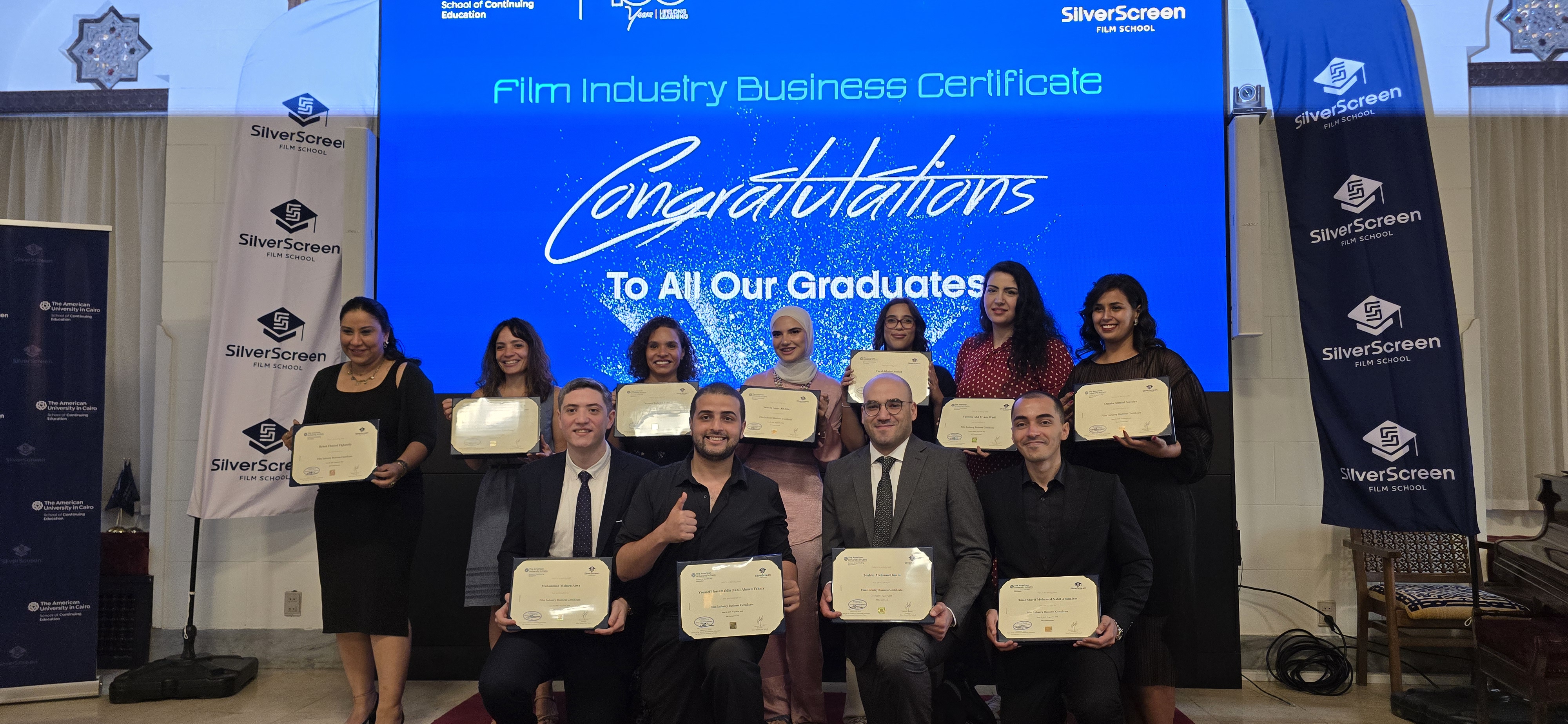Egyptian feminist Doria Shafik once graced AUC's Ewart Memorial Hall before leading a revolutionary women's march. She was a poet, editor, activist and leader of the women's liberation movement in Egypt, playing a pivotal role in securing women's right to vote.
Today, Shafik's original article drafts, photographs and copies of her magazine, Bint Al-Nil, are stored and maintained by AUC's Rare Books and Special Collections Library. How did her legacy come to be preserved by the University?
Fighting for Women
Shafik's relationship with AUC was in the spotlight in 1951, when she convened 1,500 women to discuss Egyptian women's political rights at AUC Tahrir Square's Ewart Memorial Hall. There, Shafik revealed that the conference was a ruse for greater action, announcing, "Our meeting today is not a congress but a parliament," before the women famously marched to interrupt Egypt's all-male parliament to demand political participation. The demonstration disrupted the legislature for over four hours, after which the president of the senate pledged to meet their key demands, including women's suffrage.

Doria Shafik. Photo courtesy of the University Archive
In that month's issue of Bint Al-Nil, Shafik writes, "After many years of struggle, with partial success to gain her literary rights, the Egyptian woman must now turn toward attaining her political rights to ensure her equality with men." (translation provided by Tom Abi Samra, Duke Press).
Beyond suffrage, Shafik was involved in programs to combat illiteracy, provide economic opportunities for lower-class urban women and raise the consciousness of the middle-class -- uniting women from all walks of life. "For Doria, the educated elite woman had a special mission, to bridge the immense gap between the women of the upper classes and those of the poor," writes Cynthia Nelson, former professor of anthropology and founding director of AUC's Cynthia Nelson Institute of Gender and Women Studies, in her book, Doria Shafik Egyptian Feminist: A Woman Apart.
Shafik's instrumental role in advancing women's position in Egypt was largely forgotten in her later years. In 1957, after she undertook a hunger strike protesting his government, former President Gamal Abdel Nasser put Shafik under house arrest, closed down her magazine and movement, and banned her name from appearing in historical texts and news.
By this point, Shafik had also been ostracized from the broader women's rights movement and its leaders due to the political nature of her activism, which other feminists deemed as too radical. She spent the remaining 18 years of her life in isolation.
Remembering Shafik
Though her work was once forgotten, AUC plays a key role in keeping Shafik's legacy alive. "We provide the venue, climate control and preservation of the material itself. We also provide the metadata and cataloging to make the material accessible to researchers, including students working on their master's theses," says Eman Morgan, assistant director of special projects at the Rare Books and Special Collections Library. "In addition, we help the Egyptian media and newspapers write articles and post the material online."
AUC received the collection not only because of Shafik's early activism at the Tahrir Square campus, but also because of its unique relationship with her family. The collection was donated by Shafik's two daughters, Jehane Ragai '66, '69, emeritus professor of chemistry, and Aziza Ellozy '64, '67, adviser to the provost for transformative learning and teaching.
"Shafik's daughters understood how the AUC library preserved, catalogued, digitized and made accessible collections at AUC and worldwide," Morgan explains.
To celebrate the life and works of Shafik, AUC also hosted a Bint al-Nil/Daughter of the Nile exhibition by Egyptian-American artist Sherin
Guirguis, which was on display during the University's centennial celebration in 2019 at the historic Tahrir Square campus.
Ellozy and Ragai additionally established the Doria Shafik Endowed Award at AUC in memory of their mother. The award recognizes undergraduates who have "worked on women's empowerment in any discipline, field or activity, such as artwork, a community service project, research on the inclusion of women, volunteer work and more."
Shafik's daughter Ellozy remembers her mother's legacy fondly. "Doria Shafik was a trailblazing force of courage and unwavering determination who fought any barriers in order to achieve equality, freedom and political rights for Egyptian women," she says. "Thanks to her, Egyptian women today can vote and actively participate in political life."
Now, Shafik's work and writing -- once the cause of her persecution -- is finding a new audience through AUC. Her powerful contributions and legacy will continue to live on through Egypt's future feminist leaders.
-By Celeste Abourjeili




 Doria Shafik. Photo courtesy of the University Archive
Doria Shafik. Photo courtesy of the University Archive


















